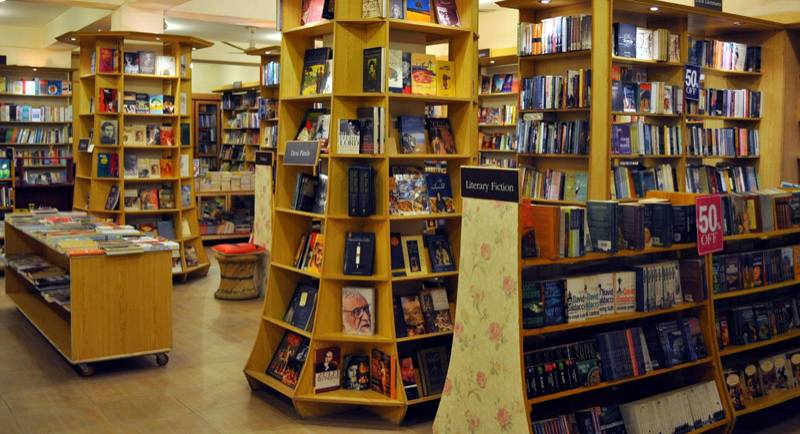
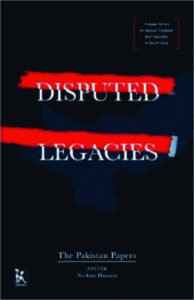
Disputed Legacies: The Pakistan Papers
Neelam Hussain
Zubaan Books (2019)
Offering vital new perspectives on the role of sexual violence as a weapon of war in Pakistan, Disputed Legacies examines the situations that arise when secular law comes into conflict with traditional practice and belief and how this directly affects policy, pedagogy, and medical practice. Focusing specifically on Pakistan, a country with a long history of internal and external conflict, the contributors to this volume trace the often troubled interaction between the state and its female citizens and examine the ingrained and pervasive structures and social systems that enable impunity for perpetrators of sexual violence to gain strength.
Disputed Legacies is part of the Sexual Violence and Impunity in South Asia series, which brings together a vast body of knowledge on this important—yet suppressed—subject. It will be essential reading for scholars of women’s studies and sexual violence.
Neelam Hussain is a writer and translator. She works with Simorgh Women’s Resource and Publication Centre and teaches English at Lahore Grammar School in Pakistan. She is the translator of Inner Courtyard by Khadija Mastur and coeditor of Engendering the Nation State.
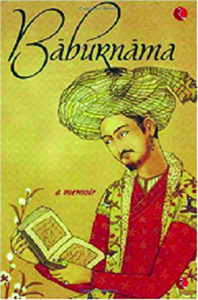
Baburnama: Zahiru’din Muhammad Babur Padshah Ghazi
Babur (author), Annette Susannah Beveridge (translator)
Rupa Publications India (2017)
A translation of Babur’s personal memoir written in Turki, Baburnama remains true to the original, portraying the extraordinary life of the founder of the Mughal Empire in India. Often quoted by historians and academicians alike, this book possesses the rare distinction of being relevant across centuries. Baburnama is the complete record of Babur’s life from the time he ascended the throne at the young age of eleven to when he finally established himself as a monarch (1493 to 1529). What fascinates readers even today is Babur’s intimate and detailed account of the world around him and what is truly astonishing is that there is no historical precedent for his narrative, making it the first real autobiography in Islamic literature. Annette Susannah Beveridge’s nuanced translation offers us a unique insight into this remarkable period in history.
Babur was a conqueror from Central Asia who, following a series of setbacks, finally succeeded in strengthening the grounds for the Mughal dynasty in the Indian subcontinent and became the first Mughal emperor.
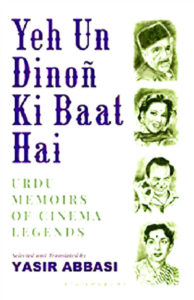
Yeh Un Dinoñ Ki Baat Hai: Urdu Memoirs of Cinema Legends
Yasir Abbasi
Bloomsbury Publishing (2018)
Peppered with heartfelt accounts and charming anecdotes, Urdu film magazines were in great favour with the public from the 1930s through the 1990s – a considerable period of seven decades. Unfortunately, as Urdu got progressively marginalised in later years, these magazines were not archived, for the most part; leading to their inevitable disappearance from popular imagination.
Tracking down these lost publications, Yasir Abbasi followed leads – some futile, some fruitful – to obscure towns and people’s homes in a last-ditch effort to save valuable records of Indian cinema. As challenging as it was to locate faded issues and original texts, he managed to uncover and translate many fabulous memoirs covering a wide gamut of our favourite old artistes at their candid best.
A gloom-laced piece on Meena Kumari by Nargis, a rollicking description by Raja Mehdi Ali Khan of an eventful evening with Manto (not to mention a mysterious woman and a house on fire), Jaidev writing about his chequered career, Balraj Sahni introspecting about the relevance of Hindi and Urdu in films – it’s a rich mix of engrossing narratives brought back from oblivion.
A trained cinematographer by profession, Yasir Abbasi completed his early education from Gorakhpur and Lucknow. Following his Masters in Mass Communication from Jamia Millia Islamia, New Delhi in 2002, he has been involved with shooting documentaries and independent films, and has won several awards at film festivals for his work.
A lifelong film buff who watches The Godfather and Gunda with equal sincerity, he lives in Gurgaon with his wife.
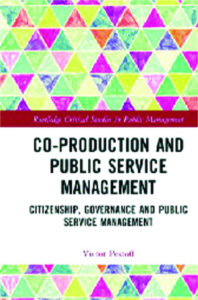
Co-Production and Public Service Management: Citizenship, Governance and Public Services Management
Victor Pestoff
Routledge (2018)
This volume compiles a dozen essays, by one of the most prolific proponents of co-production as a solution for many of the challenges facing public services and democratic governance at the outset of the 21st Century. Co-production is considered a partnership between citizens and public service providers that is essential for meeting a growing number of social challenges, since neither the government nor citizens can solve them on their own.
These challenges include, among other things, improving the efficiency and effectiveness of public services in times of financial strain; increasing the legitimacy of the public sector after decades of questioning its ability with the spread of New Public Management; promoting social integration and cultural pluralism in increasingly diverse societies when millions of refugees and immigrants are on the move; tackling the threat of burgeoning populism following the rise of anti-immigrant and anti-global parties in many countries in recent years; and finally, finding viable solutions for meeting the growing needs of aging populations in many parts of the world.
This volume addresses issues related to the successful development and implementation of a policy shift toward greater citizen participation in the design and delivery of the services they depend on in their daily lives and greater citizen involvement in resolving these tenacious problems, facilitated by the active support of governments across the globe. Moreover, it explores participatory public service management that empowers the front-line staff providing public services. Together with users/citizens they can insure the democratic governance of public service provision.
Victor A. Pestoff is Guest Professor at the Civil Society Research Unit at Ersta Skondal University College, Stockholm, Sweden.
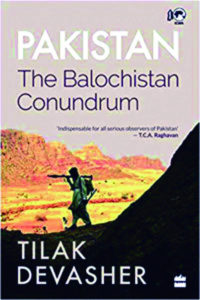
Pakistan: The Balochistan Conundrum
Tilak Devasher
HarperCollins Publishers India (2019)
Balochistan, Pakistan’s largest province, is a complex region fraught with conflict and hostility, ranging from an enduring insurgency and sectarian violence to terror strikes and appalling human rights violations. In his third book on Pakistan, Tilak Devasher analyses why Balochistan is such a festering sore for Pakistan. With his keen understanding of the region, he traces the roots of the deep-seated Baloch alienation to the princely state of Kalat’s forced accession to Pakistan in 1948. This alienation has been further solidified by the state’s rampant exploitation of the province, leading to massive socio-economic deprivation. Is the Baloch insurgency threatening the integrity of Pakistan? What is the likelihood of an independent Balochistan? Has the situation in the province become irretrievable for Pakistan? Is there a meeting ground between the mutually opposing narratives of the Pakistan state and the Baloch nationalists? Devasher examines these issues with a clear and objective mind backed by meticulous research that goes to the heart of the Baloch conundrum.
Tilak Devasher has taken to writing after he retired from the cabinet secretariat, Government of India, as special secretary in 2014. He is the author of two widely acclaimed books on Pakistan-Pakistan: Courting the Abyss (2016) and Pakistan: At the Helm (2018). During his professional career with the cabinet secretariat, he specialized in security issues pertaining to India’s neighbourhood. Post retirement, he has continued to take a keen interest in India’s neighbourhood, with special focus on Pakistan and Afghanistan. He has written articles for various national newspapers and magazines and has also appeared on TV shows on leading news channels like India Today, Times Now, CNN News18 and Rajya Sabha TV. Devasher did his schooling from Mayo College, Ajmer, and studied history at St Stephen’s College, Delhi, at the undergraduate level and at the University of Delhi at the postgraduate level. He is currently a member of the National Security Advisory Board (NSAB) and a consultant with the Vivekananda International Foundation (VIF).

